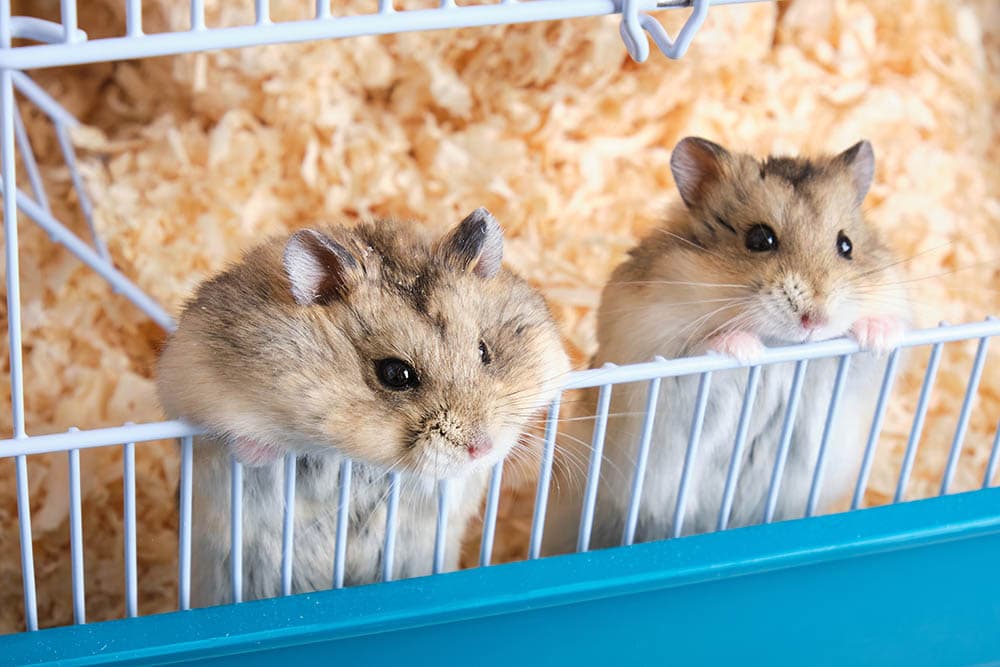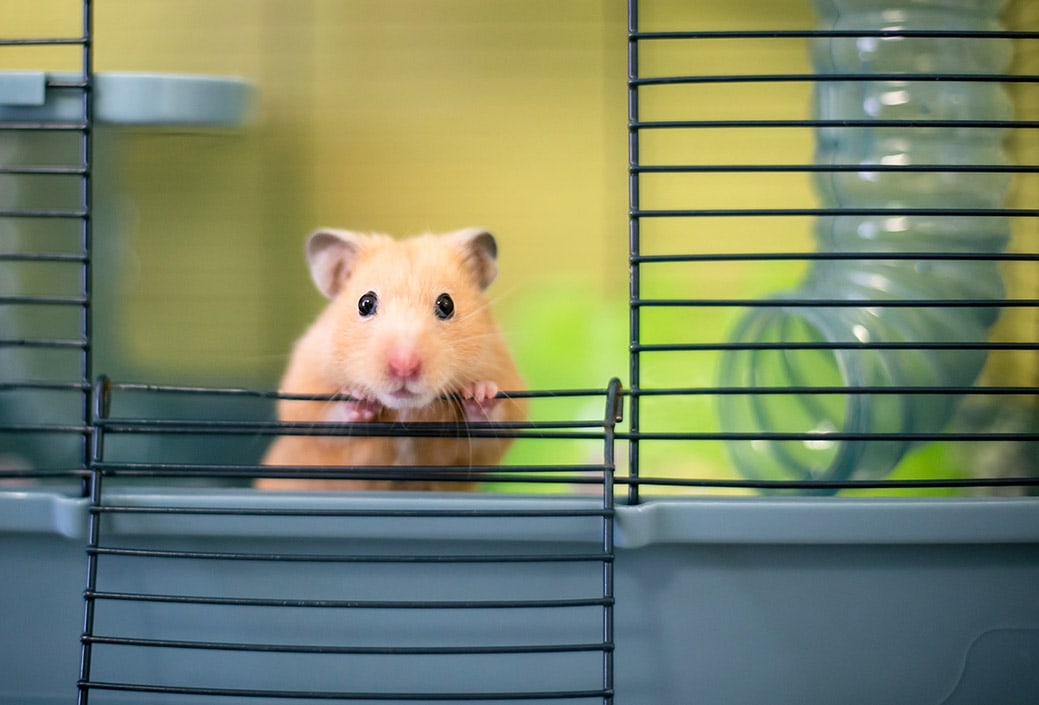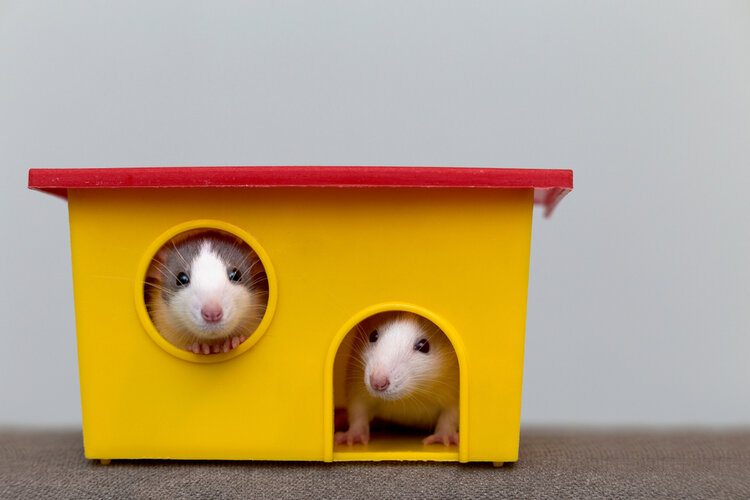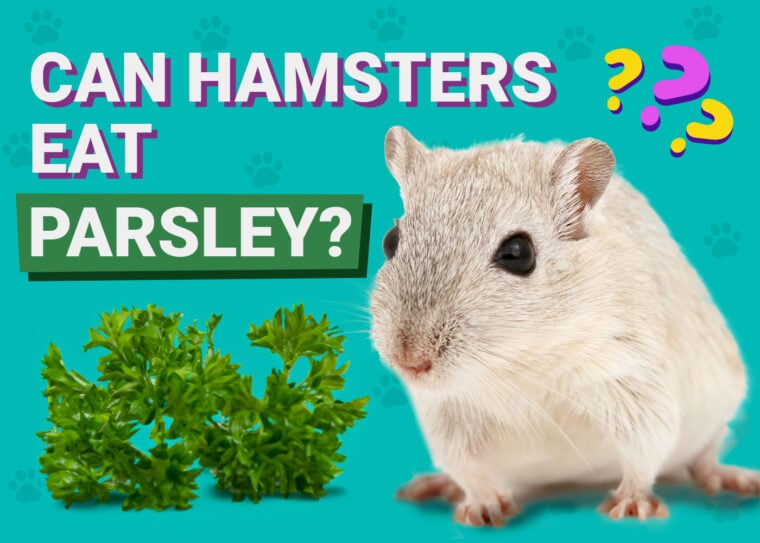
If you have a hamster, you probably love preparing a variety of healthy fruits and vegetables for them to enjoy. If you also usually cook from scratch at home, you might have a parsley plant on your kitchen windowsill or out in the garden.
But if you’re wondering whether it’s okay to feed your furry friend this fresh-tasting herb, you’re in the right place! Yes, parsley is safe for hamsters to eat, but only in small quantities. Let’s take a look at why.
The Benefits of Parsley
Parsley offers several benefits to hamsters. Vegetables should make up a portion of their diet, so you should always be on the lookout for foods that they can safely consume. Parsley is a readily available, safe-to-consume vegetable that can be offered to your hamster1.
The chief benefit of parsley is that it contains an excellent amount of vitamin A (in the form of beta-carotene). In hamsters, beta-carotene was seen as a beneficial supplement for experiments involving cancers of the respiratory tract2.
Most hamsters love the taste of parsley, but don’t be tempted to overfeed them. It’s not a good idea to offer too much of this to your pet in one go.

Potential Risks of Parsley
Parsley can offer benefits to your hamster, but it should only ever be fed in moderation. There are several reasons for this.
Oxalates
Oxalates are naturally occurring compounds found in many plants. They serve two purposes for plants: regulating their own internal mineral content and helping defend against predators. They are sometimes referred to as oxalic acid.
The presence of oxalates is a considerable drawback for foods that are high in the compound, such as parsley. Within the body, oxalates bind to minerals like calcium in the kidneys and can form kidney stones. This has been documented in hamsters.

Calcium
Parsley is quite rich in calcium, which can be problematic to hamsters if offered in excess. Calcium has been shown to activate certain enzymes in a hamster’s body that are related to heart issues.
However, it is important to note that calcium is also necessary for hamsters. Hamsters fed a diet supplemented with appropriate amounts of calcium had lower incidences of dental caries.
The calcium requirements of hamsters also vary according to their age. So, while parsley does have high amounts of calcium, it is prudent to remember that this may not always be a bad thing.
Feeding Your Hamster Parsley
If you’re ready to see if your hamster likes parsley, start by feeding them a tiny amount—we recommend half a leaf. You may also want to clear this with your vet first.
Watch your hamster’s activity and overall behavior over the next 24–48 hours, to check that they’re behaving as normal and haven’t developed any side effects.
It’s unlikely that parsley will disagree with your hamster’s digestive system, but the signs to look out for include:
If your hamster develops any of these signs, it’s best not to feed them any more parsley.
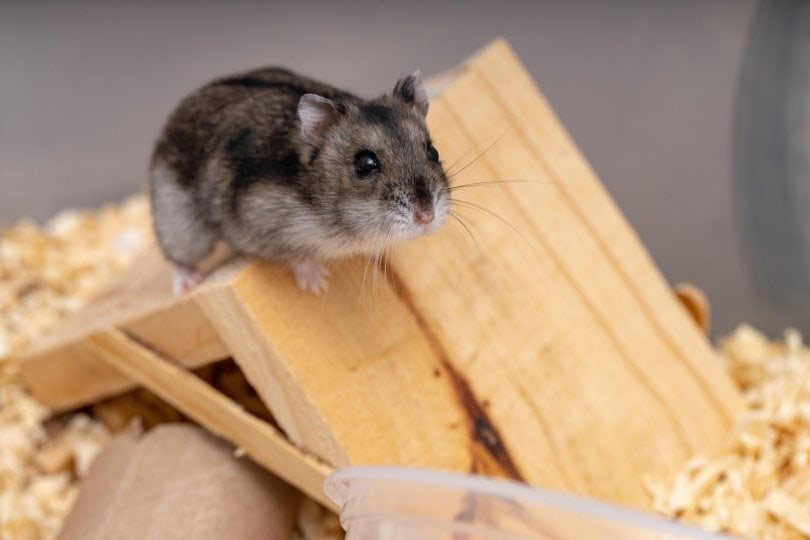
If your hamster has diarrhea, you should not attempt to rehydrate them with plain water, as this will make things worse. You should seek a product made specifically for rehydrating hamsters, available from your pet store or veterinarian.
Diarrhea in hamsters should not be taken lightly, and if you notice diarrhea in your hamster, you should seek prompt professional care for them.
Make sure you wash the parsley before feeding it to your hamster, as many farms use pesticides on their produce.
Hamsters love to hide and hoard their food, so always check your hammy’s cage and remove any fresh vegetables that they’ve hidden, so they don’t go bad. Your hamster probably has special hiding places, so once you’ve figured out where these are, you can quickly take out any vegetables that could spoil. You can replace these with a few pellets of their regular food or a hamster chew, so your hammy won’t be too disappointed to find that their hoard has been raided!
Don’t offer parsley to your hamster at the same time as other calcium-rich vegetables, like broccoli or kale. If your hamster has a history of bladder or kidney stones, the high calcium content of parsley may trigger a recurrence. Always consult with your veterinarian for any dietary inclusions or changes if your hamster has been diagnosed with a health condition.
Summary
Parsley is safe to feed your hamster in small amounts. Once you’ve introduced parsley into your hamster’s diet, you can offer them a few leaves a week alongside their usual ration of vegetables. Avoid feeding parsley with other calcium-rich vegetables, though, like broccoli and kale.
Your hamster’s nutritional needs should be met by high-quality pelleted food and hay. Supplements like parsley, other herbs, and vegetables can be used to add nutritional benefits to your pet’s diet.
It’s a good idea to get into the habit of checking your hamster’s cage every day for fresh food, like parsley leaves, that they may have hidden.
Featured Image Credit: restyledliving, Pixabay





